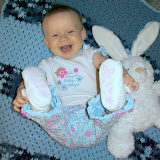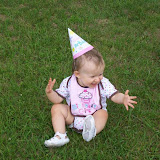skip to main |
skip to sidebar

Emilie's forever angel baby sister. Kaitlin made us parents, a special gift. Emilie taught us what being a parent is all about. Both are loved equally in our hearts. (click on her picture to see her blog)

Donate to Kaitlin's Angels. A project to help bring memorial items to local hospitals and people across the world.
(you can read more about it by searching it one Facebook or going to Kaitlin's blog)
Brother Nathan Vaughn
Mommy is currently pregnant with a baby brother! His name is Nathan Vaughn. You can read about him here:
NATHAN VAUGHN
My Sister: Kaitlin Terra Herne
Emilie's forever angel baby sister. Kaitlin made us parents, a special gift. Emilie taught us what being a parent is all about. Both are loved equally in our hearts. (click on her picture to see her blog)
Donate to Kaitlin's Angels. A project to help bring memorial items to local hospitals and people across the world.
(you can read more about it by searching it one Facebook or going to Kaitlin's blog)
My Sister Sage
I have another angel sister, she didn't stay with us long. But you can read her story here:
Sage Owl Herne
Labels
0-3 Months
(51)
12 - 18 months
(74)
18 - 24 months
(28)
2 years old
(1)
2nd Birthday
(3)
2y - 3y
(42)
3-6 months
(46)
3y - 4y old
(28)
6-9 months
(53)
9-12 months
(28)
Birth
(3)
Cartoon
(41)
CL Chart
(1)
Holidays
(45)
Kaitlin
(3)
Photos/Videos
(329)
Pregnancy
(234)
Preparation
(43)
TTC
(29)
Weeks
(47)












No comments:
Post a Comment